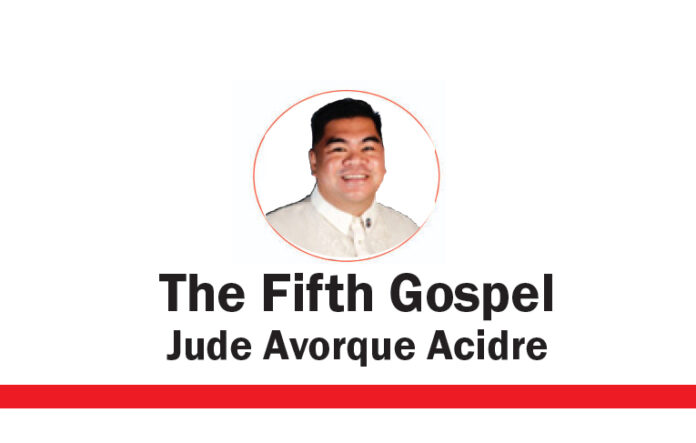“So here’s the deal: if lies are being repeated every hour, every minute, every second—then truth needs to be louder”
‘‘QUID est veritas? What is truth?”
Pontius Pilate asked this question centuries ago—right before he handed Jesus over to be crucified. Though it was asked in a very different time and place, it’s still the question we find ourselves asking today.
We live in a time when truth feels like it’s getting harder and harder to find. One post says one thing, another post says the complete opposite. You scroll through social media and it’s like everyone has their own version of the story.
And somehow, they all sound convincing. It’s confusing, exhausting, and honestly, a little scary. With so much noise, so many opinions, and so little time to figure out what’s real—it’s no wonder people end up believing the wrong things.
Truth used to be something solid. Now it feels like it’s getting lost in the mix.
The recent elections reminded us of just how noisy the digital world has become.
And how that noise shapes people’s thinking in ways many of us don’t even realize. From fake news articles to misleading headlines, from edited videos to carefully crafted lies—the truth gets buried, and the lie takes center stage.
There’s a phrase often linked to Joseph Goebbels, the propaganda minister of Nazi Germany:
“Repeat a lie often enough and it becomes the truth.”
Now, whether he really said it or not, the principle behind it is chilling—and real. It tells us something deeply disturbing about how people can be manipulated. Not just through force. Not just through fear. But through repetition.
Psychologists today call it the “illusion of truth” effect. It’s simple: the more often we hear something—true or false—the more likely we are to believe it.
Familiarity breeds belief. And in a world where content is king, and virality is power, that’s a very dangerous thing.
Social media didn’t create this problem—but it has definitely supercharged it.
You see, our brains are wired to take shortcuts. We don’t have time to fact-check everything we see. So, when something shows up on our timeline over and over again, our brain starts saying, “Hey, I’ve seen this a lot. It must be true.” Even if it’s not.
Add to that the way algorithms work. The moment you like or click on something, you’re fed more of the same.
You get pulled into an echo chamber where you keep hearing the same opinions, the same claims, the same stories—again and again. Before you know it, you’re not just hearing one version of the truth. You’re living inside it.
And inside these echo chambers, influencers—content creators, streamers, bloggers, vloggers—become kings and queens. They gain followers. They shape culture. They make opinions. They lead narratives.
They may not wear suits or sit in boardrooms, but in today’s world, influencers often hold more sway than politicians, journalists, even teachers. What they say travels fast. And when they speak, people listen.
But that influence comes with weight. And that weight comes with responsibility.
This is not about policing speech or taking away anyone’s right to express themselves. This isn’t about shutting people up just because we don’t agree with them. Let’s not go there.
This is about realizing the difference between having a voice and using it well. This is about truth—and the need to protect it. It’s about acknowledging that we live in a time where truth and lies are in constant competition. And the one that gets repeated more often wins.
So here’s the deal: if lies are being repeated every hour, every minute, every second—then truth needs to be louder. Not angrier. Not more aggressive. Just more present. More consistent. More courageous.
Because if truth is repeated more than the lie—even just by a small margin, say 51 percent versus 49 percent—then it still has a chance to win.
But if lies dominate the feed, then even smart, well-meaning people will find themselves misled. Not because they’re gullible, but because they’re human.
And humans need help. We need guidance. We need reminders. And we need to be part of a culture that chooses truth—not once in a while, not only when it’s convenient, but every single day.
We can’t normalize lies. We can’t treat “fake news” as just part of the game. We can’t allow disinformation to be shrugged off as “just politics.”
Because when we do, we lose something far more important than an election—we lose our ability to trust, to reason, to build anything solid as a nation.
So what do we do?
First, we hold each other accountable. Especially those who have a platform.
Not to cancel them, but to challenge them to speak responsibly. If you have followers, you have influence.
And if you have influence, you better use it for good. That means checking facts, thinking twice, and being honest—especially when it’s hard.
Second, we become truth-tellers ourselves. We don’t have to go viral. We just have to be consistent. Say what’s right. Share what’s real. Repeat it. Again and again. Because if the lie is working hard, the truth has to work even harder.
Lastly, we choose to care. About what we read. About what we share. About the people on the other end of our posts. Truth doesn’t survive in apathy. It survives in community—when people come together and say, “Enough. We want the truth.”
So yes, Pilate’s question still stands: “What is truth?”
But maybe the more important question today is: “Are we willing to fight for it?”
Because truth doesn’t just need to be known. It needs to be defended. Proclaimed. And repeated—until it drowns out the lie.








